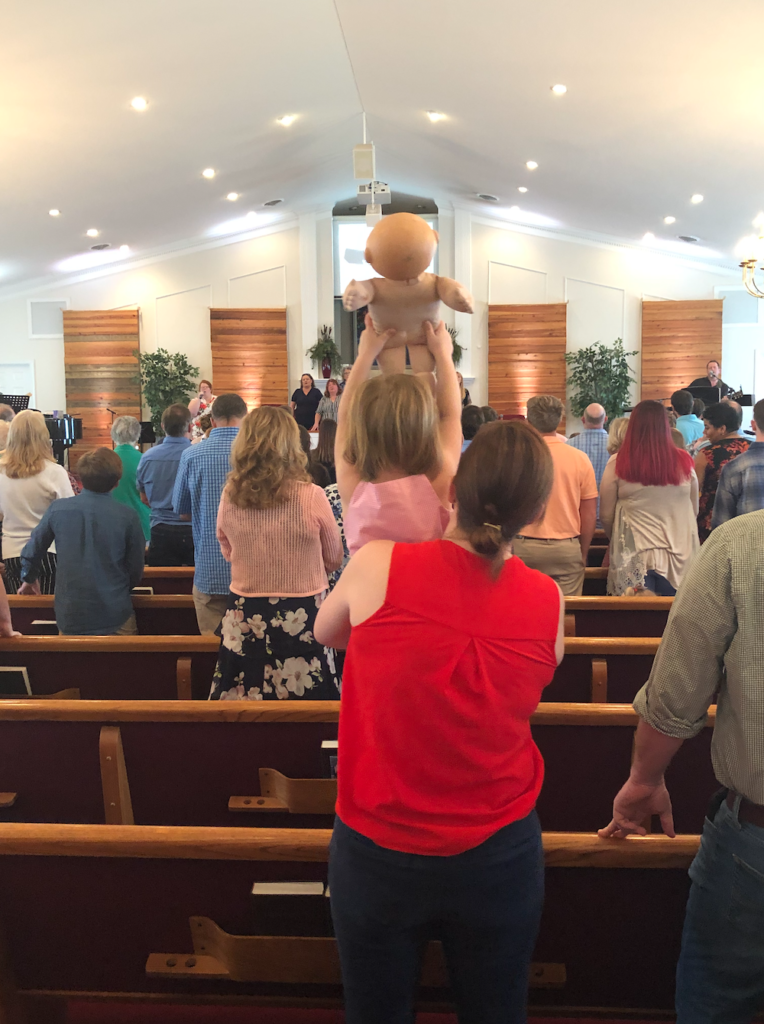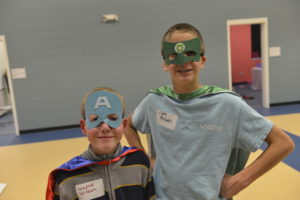Isogesis – This is where we bring our own presuppositions, opinions, backgrounds, biases, etc. to the text and make it say what we want it to say, instead of letting the text speak for itself.
a place for us to share ideas, talk about life, and learn together.
Isogesis – This is where we bring our own presuppositions, opinions, backgrounds, biases, etc. to the text and make it say what we want it to say, instead of letting the text speak for itself.
Biography for my sermon series on James:
Adamson, James. The New International Commentary on the New Testament, The Epistle of James. Grand Rapids, Michigan: Eerdmans Publishing Company, 1979.
Allen, Clifton J, General Editor. The Broadman Bible Commentary, Volume 12. Nashville, Tennessee: Broadman Press, 1973.
Arnold, Clinton E, General Editor. Zondervan Illustrated Bible Backgrounds Commentary. Grand Rapids, Michigan: Zondervan Press, 2001.
Buttrick, Arthur. The Interpreter’s Bible, Volume 12. Nashville, Tennessee: Abingdon Press, 1957.
Davids, Peter H. New International Biblical Commentary, James. Peabody, Massachusetts: Hendrickson Publishing, 1989.
Moo, Douglas. Tyndale New Testament Commentaries, James. Grand Rapids, Michigan: Eerdmans Publishing Company, 1985.
Nystrom, David P. The NIV Application Commentary, James. Grand Rapids, Michigan: Zondervan Publishing, 1997.
Perkins, Pheme. Interpretation A Bible Commentary for Teaching and Preaching, First and Second Peter, James, and Jude. Louisville, Kentucky: John Knox Press, 1982.
Phillips, John. Exploring the Epistles of James. Grand Rapids, Michigan: Kregel Publishing, 2004.
Robertson, A. T. Studies in the Epistle of James. Nashville, Tennessee: Broadman Press, 1959.
Stevenson, Hebert F. James Speaks For Today. Westwood, New Jersey: Fleming H. Revell Company, 1966.
Strauss, Lehman. James, Your Brother. Neptune, New Jersey: Loizeaux Brothers, 1980.
Stulac, George M. The IVP New Testament Commentary Series, James. Downers Grove, Illinois: Intervarsity Press, 1993.
Wiersbe, Warren W. Be Mature, James. Colorado Springs, Colorado: David C. Cook Publishing, 1978. (I used an updated version of this book but could not find the date).

“It is better to be a warrior tending to his garden than a gardener in a war.”
The basic idea of this quote is that it is better to be prepared for life’s circumstances and its’ difficulties, than to be thrust into an experience that you have no training or preparation for. The motto of Boy Scouts is “be prepared.” But prepared for what? How can you one possibly be prepared for every possible scenario one may encounter? There are some life topics that demand our attention, while others, while important, are not the same in gravity. To return to our quote, if there is a possibility of having to fight, then one needs to know how to engage in battle, and that possibility outweighs knowing how to grow plants. So, what information should one focus on? How do we know if we should be preparing for battle versus pruning gardenias?
The Soldier
The warrior is one who is prepared for battle, is respected, even feared because of his ability to succeed in the world of battle, destruction, and chaos. This warrior then steps into a world of peace and order as he tends to his garden. There is always the potential for the chaotic soldier to return and to destroy. He is dangerous yet controlled.
Jesus said in Matthew 5:5 “Blessed are the meek, for they shall inherit the earth.” The word meek in this passage means, “power under control.” It was used in reference to a horse having a bridle in its’ mouth. The horse is incredibly powerful and has a huge amount of potential destructive capability, but it is led by a small bridle. But, the soldier leaves destruction in his wake.

The Gardener
The Gardener on the other hand, knows peace, order, and how to cultivate growth. But when he is placed in a situation demanding power, he is ill equipped. The Gardener understands how to build up, start from nothing but soil and build a garden. He has the patience to wait as things mature. But, how can he protect his garden if he has no knowledge of battle? How can he protect himself and defend his brothers on the battlefield if his only knowledge is agriculture?
_______________________
Should Our Children Be Gardeners or Soldiers?
So with our children; do we teach them to fight and defend, or do we teach them to build and develop? One is seen as strong, and the other as weak. One is seen as destructive, and the other as productive. The quote gives some indication of what the author thought, let’s look at it again:“It is better to be a warrior tending to his garden than a gardener in a war.”
The person of strength and destruction has stepped into and is working in an area of cultivation. The solider is growing and developing his world around him from a place of respect and fear. This position seems to be voluntary and sought after, because the garden is “his garden.”
While the “gardener in a war” seems to be in a place of defense and fighting that is out of his control. The person who knows how to control and cultivate his garden, now is powerless to control anything.
There are things about life that are difficult to talk about with our children. One of those things is that there will be people who will seek to destroy whatever you have built, simply because it’s there to tear down. Like bullies on the seashore stomping on sand castles, there will always be those who in an instant can pull down what took years to build with much skill and hard work.
Our life’s work is worth defending, and therefore, we need to equip our children to fight for what they put their hands to build. So, our children must be soldiers in their preparation, defense, and strength, and gardeners in that they are creatively building the world around them – making it into a beautiful garden. The bully must fear them enough to leave them alone, and they must resist the fear to stop building. The destroyer will get through the defenses from time to time, so they must have the strength to start the building anew, to begin again, and to plant the tender seedling once more.
While Nehemiah was trying to rebuild the walls around Jerusalem he encountered the threat of constant attack. He came to realize that the enemy must fear the people enough to stay back while they continued to build the walls. He showed strength by having the workers hold a weapon in one hand, and a trowel in the other.
Nehemiah 4:16 “From that day on, half of my servants worked on construction, and half held the spears, shields, bows, and coats of mail. And the leaders stood behind the whole house of Judah, 17 who were building on the wall. Those who carried burdens were loaded in such a way that each labored on the work with one hand and held his weapon with the other. 18 And each of the builders had his sword strapped at his side while he built.”
Nehemiah understood that the work he set his hand to do was important enough to be defended, and he took action to do so. The people were soldiers and gardeners at the same time. Perhaps, this is the real challenge to parenting – to find the balance between aggression and peace, battlefield and garden.
 So church is starting back and for a short season we are following social distancing and staying together during the entire service. Part of the new-normal is the recognition that your children will be with you during the service, and most churches have elected to keep the children in the services. So, there you are, in the service, and your little ones are crawling under your feet, making clicking noises during the prayer time, and you are completely distracted.
So church is starting back and for a short season we are following social distancing and staying together during the entire service. Part of the new-normal is the recognition that your children will be with you during the service, and most churches have elected to keep the children in the services. So, there you are, in the service, and your little ones are crawling under your feet, making clicking noises during the prayer time, and you are completely distracted.
The following is an article I wrote in 2016, and I thought it might help you today during these strange days of church. The church and home bear the responsibility to teach the next generation essential biblical concepts — especially in these Covid-19 days.
__________________
In track there is a very important time during the 4×100 relay. No matter how fast one runner may have gone, everything hinges on the passing of the baton. Proper technique must be practiced and maintained no matter how tired the runner may be. The runner who is receiving the baton cannot go anywhere until it is in his/her hand, and the runner who is passing the baton is not considered successful until the next runner has it in their hand. The success of the handoff equals the success of the race.
In the Christian faith there is a handoff that takes place. One generation passes the baton of faith to the next generation. The children in the seats today will be preaching the sermons tomorrow. As a parent there is nothing more satisfying and that brings as much joy, as to see your children genuinely worshipping the Lord. However, as parents there is no one moment in time when the baton is passed; instead it happens a thousand times, one pass, and then another, and then another. One opportunity, that leads to another responsibility, that leads to raised expectations, etc. Slowly, over time, and then years, children grow in their faith and become leaders.
Not only is this passing the baton a parent’s responsibility it is also shared by the church as well. No matter your church’s position on children being present during the service (some leave half way through, some are out the entire time, some stay the whole time, etc.) there will be times when the children will be present for the service.
I begin with the assumption that whoever the teacher/preacher may be, that he desires to be understood and impact all in the room. Also, when the service is designed as a whole that the planners do not desire to leave anyone behind. The following are things that a worship leader or worship design team can implement with regard to children being present in a worship service.
________________________
Telling stories, putting principles and precepts into skin and bones, truths and ideas into real or imaginary people and situations excels as a means of communication. An abstraction may hold some interest, but embody it in a story and it becomes clear, understandable, and compelling.[1]
Avoid fact finding questions, instead focus on wording the questions so that they will help them reach a goal or understanding. Remember you are not desiring to raise a bunch of knowledgeable Pharisees, but whole hearted followers of Christ. For example, don’t ask “How many disciples were in today’s Bible passage?” Instead ask, “How do you think Peter felt when Jesus said, ‘Get behind me Satan?'”
A comment like “Children are welcome here. We know they may make noises, ask questions, or move around. . . it’s ok.” (the same is true for special needs families as well).
____________________________
You don’t have to water down theology or even “dumb down” the service just because the kids are there. But you need to pray and spend some extra time on how to make families feel more welcome and relaxed as they attend services together.
Also, a quick note to parents; just because your child may be drawing on the bulletin or crawling around under the chairs, don’t assume that they were not listening. Ask them on the way home what they heard, you will be amazed at what they can retain. As the church and the home work together on making our services more kid/family friendly we will make some great strides to passing off the baton. But don’t forget it’s not a one shot deal, it’s week after week, Sunday after Sunday of partnering together to reach the next generation for Christ.
Get ready, set, . . .Go
______________
[1] Roy Zuck. Teaching as Jesus Taught (Grand Rapids, Michigan; Baker Publishing), 306.
[2] I go into this specific topic in greater depth in other articles. Click here to read further.

First Baptist Church of Valdosta began a special needs ministry called PURE about two years ago. We have experienced many wonderful events including multiple Respite evenings and the highlight of the year was Tim Tebow’s sponsored Night to Shine. We have several families with special needs who are an essential part of our congregation and our prayer is to be a place where all are welcomed, loved, and ministered to. Not only does FBCV, but the the entire Body of Christ have a responsibility to love them, befriend them, to lead them to Christ, and to partner with them in ministry.
But what keeps this from happening in many churches? The following are some things that often keep believers from participating in these wonderful times of ministry, and how we can over come them.
The Problem of Misunderstanding (v. 1-2)
1As he went along, he saw a man blind from birth. 2His disciples asked him, “Rabbi, who sinned, this man or his parents, that he was born blind?”

Jesus was escaping a mob who desired to kill Him. In chapter 8 Jesus was teaching among many things that, “anyone who was without sin should cast the first stone” (8:7), and the He was the Light of the World (8:12). Eventually, the Jewish people became so mad that they picked up stones to kill Jesus, but He slipped away.
In spite of the heavy mood, Jesus was never in too big of a hurry to minister to someone in need. While Jesus was looking to minister, the disciples were looking in judgment. With “who sinned,” the disciples assumed that it was someone’s sin that caused the man to have this condition. They believed that sin was the primary cause of all suffering. According to their dogma, if anything bad happened to you in life it was because of your sin.
We see the opposite in Job 1:8 when it says “Then the LORD said to Satan, “Have you considered my servant Job? There is no one on earth like him; he is blameless and upright, a man who fears God and shuns evil.” Job was righteous and blameless yet his worked was rocked.
Regarding families with special needs, there is no reason to blame, but every reason to support the family, and to help display God’s mercy, kindness, love, and hope in their lives and the life of the child.[1] Families have questions that they may need help answering. “Why did God allow this to happen?” “Is it permanent?” “Can I afford the care?” “How do I discipline my child who has a disability?” “What do I say to people who stare at my child?” “Will my child ever be able to accept Jesus?”[2]
The disciples were asking the wrong question, and instead of helping they were judging.

The Purpose of the Man’s Condition (v. 3)
3“Neither this man nor his parents sinned,” said Jesus, “but this happened so that the work of God might be displayed in his life.
When it says, “this happened so that the work of God might be displayed in his life” we see that God seeks to display himself in the lives of those who follow Him.
What works of God were displayed?
A. God’s compassion was displayed. No one “saw” this man except Jesus. Many times those with special needs are ignored as if they are not there, or they are judged as inferior or being deserving of their condition. In some churches those with special needs are even asked not to come back because it makes people feel uncomfortable. In both of the churches where I have served and been apart of a special needs ministry, there are parents who have told me of horror stories of how they were asked or told not to come back. Jesus noticed him, explained that it was no one’s fault, and that God had a plan for this man’s life (as He does for everyone’s lives).
B. God’s person was displayed. Jesus healed this man showing all who saw that He was from God. Jesus said in
 John 10: 25 “…The miracles I do in my Father’s name speak for me, …” Miracles were expressions of God’s salvation and glory.
John 10: 25 “…The miracles I do in my Father’s name speak for me, …” Miracles were expressions of God’s salvation and glory.
When in jail John the Baptist sent some of his disciples to see if Jesus “was the one to come” (Matt. 11:3). Jesus told them to inform John of what He had done: “The blind receive sight, the lame walk, those who have leprosy are cured, the deaf hear, the dead are raised, and the good news is preached to the poor” (11:5). Miracles were proof of who Jesus was (God) and the presence of the kingdom of God (Matt. 12:39).[3]
When John wrote about miracles that Jesus performed he believed that they held deep spiritual truth, demanding obedient faith. Thus, Jesus feeding the five thousand (6:1-15) was Jesus’ presentation of Himself as the True Manna, the one who gives life and sustenance.[4]
In John 9 Jesus is presenting Himself as the light of the world. He gives spiritual light to all who are in spiritual darkness. Jesus also understood His miracles as evidences of the presence of the kingdom in His ministry (Matt. 11:2-5); 12:28). Every miracle was a sign that God’s salvation was present.
His miracles were performed on the most unlikely of people. Jesus brought the salvation of God to those who were rejected by society. He healed the lame (Matt. 9:1-8), the mute (Matt. 9:32-33), the leper (Luke 17:11-19), and the blind (John 9:1-3). Jesus brought the kingdom to all, regardless of their condition or social status.
C. God’s empowerment was displayed. Not only is he empowered with new sight but he was bold before the Pharisees and other religious leaders. John 9:30 says “The man answered, “Now that is remarkable! You don’t know where he comes from, yet he opened my eyes. We know that God does not listen to sinners. He listens to the godly man who does his will. Nobody has ever heard of opening the eyes of a man born blind. If this man were not from God, he could do nothing.”
This man who was blind from birth would have known nothing but begging his whole life, now he stands before the religious authorities and tells them spiritual things they can not understand. We are empowered by God whenever we tell others about Jesus. He will always give us the words to say and the Scripture to use. We are also empowered by God to do what ever it is that he has called us to do.
The Partnership of All Believers in the Ministry (vv. 4-5)
4As long as it is day, we must do the work of him who sent me. Night is coming, when no one can work. 5While I am in the world, I am the light of the world.”
In the Jewish agrarian society all work had to be done during the day. When night came the work must stop. Jesus is saying that there will be a time when Jesus’ work would come to an end. We are to do the work that God has given us to do, and like Jesus that time is limited. All of our days are limited. In the time we have, we must work to build His kingdom.

Jesus is also clear that we are to partner with all believers in the work of God. Those with special needs are usually designated as receivers of ministry. But have we asked the question “What is their calling? What has God designed them to do for His kingdom?”
We are to partner with all believers and minister together. The church is to help people discover their calling in this life and to pursue God with all of their heart. 1 Corinthians 12:22 says, “on the contrary, those parts of the body that seem to be weaker are indispensable, and the parts that we think are less honorable we treat with special honor.” (v.25) “ …its parts should have equal concern for each other.”
Jesus says, “I am the light of the world.” Jesus did not stop being the “light of the world” when he ascended into heaven, but the light was brighter when He was here. He continues to be the spiritual light of the world (salvation) and he is also the physical light of the world (healing this man’s eyes allowing him to see the light.)
The Power of The One Who Sends (vv. 6-7)
6Having said this, he spit on the ground, made some mud with the saliva, and put it on the man’s eyes. 7“Go,” he told him, “wash in the Pool of Siloam” (this word means Sent). So the man went and washed, and came home seeing.
We are reminded here with “he spit on the ground” of Gen. 2:7 “And the LORD God formed man of the dust of the ground, and breathed into his nostrils the breath of life; and man became a living being.”
Siloam is Hebrew for sent. Jesus was the one who was sent by His Father to earth. Jesus sends the disciples to continue His work. Matthew 28:19 says, “Therefore go and make disciples of all nations, baptizing them in the name of the Father and of the Son and of the Holy Spirit, and teaching them to obey everything I have commanded you.” God used the man who was born blind in a way that he could never have used the disciples. The man was able to witness for Christ six times in verses 1-42.
Witnessing is nothing more than telling someone else what Jesus has done for you. The disciples can not share this man’s testimony with the same impact, and no one can tell your story with the same understanding. When we are obedient to Christ we too will see things that we never could have seen before. God always calls us to faith in Him, then washes us of all sin, and through this process we see things differently.
Having a relationship with Christ is the only way for us to see the world (and people)
as God desires for us to see it. Many of you have only been saved a few years but when you look back on the things you did and enjoyed when you were lost, you would say “WOW, look how I have been changed!”
There is understanding in a relationship with Christ, purpose in a relationship with Christ, there is fellowship and friendships in a relationship with Christ, and there is power in a relationship with Christ.
The Puzzlement of the People (vv. 8-13)
8His neighbors and those who had formerly seen him begging asked, “Isn’t this the same man who used to sit and beg?” 9Some claimed that he was. Others said, “No, he only looks like him.” But he himself insisted, “I am the man.” 10“How then were your eyes opened?” they demanded. 11He replied, “The man they call Jesus made some mud and put it on my eyes. He told me to go to Siloam and wash. So I went and washed, and then I could see.” 12“Where is this man?” they asked him. “I don’t know,” he said. 13They brought to the Pharisees the man who had been blind.
In ancient times, such severe physical deformities like congenital blindness sentenced a person to begging as the only means of support.[5] But now he had been changed. “How then were your eyes opened?” The man simply tells what Jesus had done to him. He explained how he followed in obedience, and how he received his sight. People, when they see the change in our lives, will demand to know how you were changed.
“Where is this man? is the sensible next question for a person inquiring about the man who did this miracle. Another way to say this is “how can I meet Him?” “Can I be changed too?” If you have never met Jesus you can not lead another person to Him. He had not as of yet met Jesus. The man finally met Jesus in vv. 35-39.
35Jesus heard that they had thrown him out, and when he found him, he said, “Do you believe in the Son of Man?” 36“Who is he, sir?” the man asked. “Tell me so that I may believe in him.” 37Jesus said, “You have now seen him; in fact, he is the one speaking with you.” 38Then the man said, “Lord, I believe,” and he worshiped him. 39Jesus said, “For judgment I have come into this world, so that the blind will see and those who see will become blind.”
Those who knew this man, his neighbors and acquaintances, saw him after the healing. Some believed, some did not. Why? Some people simply will not believe in Jesus simply because they choose not to, even though all the evidence they need is right there in front of them. These people were faithless by choice. All those who have received the saving power of Jesus, where he allowed us to see the truth (the light), have never seen the hand that healed them. We can only see the effects of Jesus in our lives.
A Man named Nicodemus came at night and asked Jesus some questions, and:Jesus answered, “I tell you the truth, no one can enter the kingdom of God unless he is born of water and the Spirit. 6Flesh gives birth to flesh, but the Spirit gives birth to spirit. 7You should not be surprised at my saying, ‘You must be born again.’ 8The wind blows wherever it pleases. You hear its sound, but you cannot tell where it comes from or where it is going. So it is with everyone born of the Spirit.” 9“How can this be?” Nicodemus asked.”
Salvation may seem to be strange or mysterious but we can look at the event of this man’s life. First, Jesus noticed the man. He calls us at different times in our lives to salvation. Then he required that the man show faith in him to be healed. We show faith in Christ by believing that Jesus died for our sins, and that he rose again. We then are able to see things through a new pair of spiritual eyes.
If you have never met Jesus or understand who He is, ask Him to heal your spiritual eyes and He will.
________________
[1] Jim Pearson. Exceptional Teaching. Cincinnati: Standard Publishing. p. 215.
[2] Ibid.
[3] R. F. Youngblood ed. Nelson’s New Illustrated Bible Dictionary. Nashville:Nelson Publishing. p. 847.
[4] Ibid.
[5] John MacArthur. The MacArthur Study Bible, Nashville: Word Publishing. p. 1601.